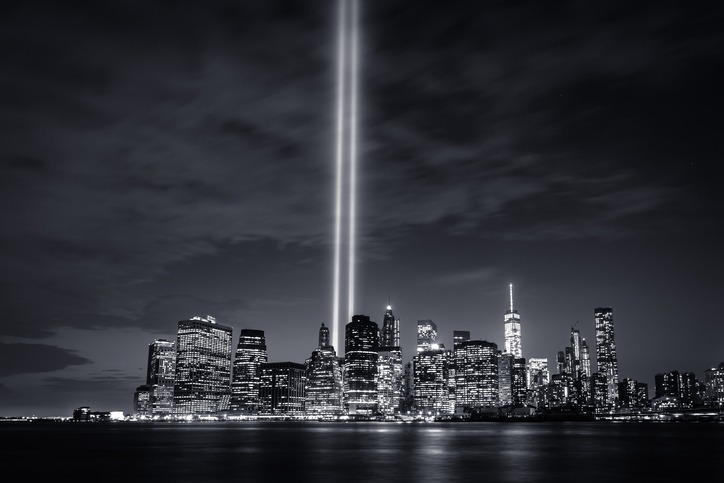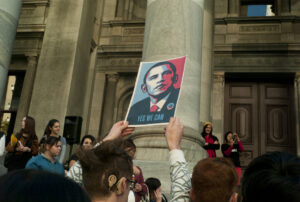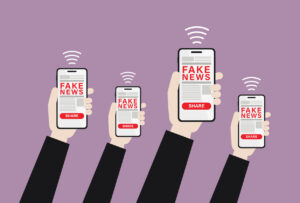20 years later, comms pros remember Sept. 11
The communicators behind 9/11 Day—a national day of service honoring the victims of the deadly attack in 2001—look back on two decades of making a difference.

For communications pros David Paine and Jay Winuk, the tragic events of Sept. 11, 2001, were a call to service.
Paine and Winuk first met during their days managing client accounts at Burson-Marsteller’s New York City office in the 1980s. Paine went on to found Paine PR on the West Coast, a highly successful and innovative mid-size agency. Winuk helped build the then-new NYC office of GolinHarris and served as director of PR for Radio City Productions before opening his own firm, Winuk Communications, Inc.
But like many New Yorkers, they had a personal connection to the tragic events of that fall day in 2001. Winuk’s brother, Glenn, was an attorney and volunteer firefighter who died in the attack on the World Trade Center. Paine’s brother, Andrew, was also downtown when the towers fell, though he escaped unharmed. The two would go on to found the nonprofit “9/11 Day” in 2002.
“My late brother Glenn Winuk is always top of mind for me, but especially as each 9/11 anniversary approaches,” says Winuk. Glenn helped evacuate the offices of his law firm before heading out on foot to try and help evacuate the South Tower. “He had the training and courage to jump into action when terror struck,” Winuk says.
For Winuk and Paine, it was this example of selfless service that called them to use their communications backgrounds to do something greater.
“When David Paine and I began 9/11 Day as a grassroots initiative in early 2002, we had no real plan in place, no funds raised, no staff, etc,” says Winuk. “But, after conducting some initial research, we knew we had a good idea. And we had years of public relations experience and communications know-how in terms of the ways to creatively get the message out, bring coalitions together, event planning and staging and more.”
It’s a reminder that communications pros have powerful skills at their disposal to make a difference in their communities. “As we have grown the observance from an idea into the nation’s largest annual day of charitable engagement, now with more staff and funds to support it, those and other communications skills continue to be critical factors in our success and the growth of this national observance.”
A somber milestone
The 20th anniversary of the attack comes on the heels of the U.S. withdrawal from Afghanistan after invading the country in the wake of the attacks 20 years ago, a decade after special forces killed Al-Qaeda leader Osama Bin Laden.
Winuk’s organization is looking to mark the anniversary in a number of ways, all centered around the organization’s mission of community service.
“We have a lot of plans in the works,” he says. “We are again staging large-scale meal packs in cities around the nation on 9/11 at which we bring together thousands of volunteers to collectively pack millions of non-perishable meals for donation to local food banks in those cities,” he says. “We are launching a new education program with Discovery Education for use in grade schools everywhere that will help facilitate learnings about the events of 9/11, the effectiveness and importance of people coming together in unity and so many other lessons that are just as relevant today as they were in the aftermath of the attacks.”
Winuk adds that there will be a PSA campaign to support the initiatives and other activities that are still “in the works.”
https://www.youtube.com/watch?v=oFIFhp2wzfs&list=PLdrQ-5nkBOCbDkwc6HdaiKlAW9V9a9RyM&index=2&t=24s
For other organizations that are looking to mark the anniversary, Winuk suggests his website—www.911day.org—and other resources.
“In collaboration with the federal government, the three national 9/11 memorials, numerous 9/11-related nonprofit organizations and other groups, we continue to lead this national observance, and our website is a good starting point for more information and to activate. Millions of people participate each year, either in self-directed ways or as part of activities organized by their employers, local nonprofits, faith-based orgs, schools, municipalities, etc. There’s no shortage of ways to engage.”
The bigger picture
Working for 9/11 Day has offered a lot of lessons for Winuk over the years.
“On a personal level, I’ve learned about the strength, wisdom and creativity of many of my own family members, friends and colleagues,” he says. “These colleagues include people I’ve come to know well within the 9/11 community at-large, an extraordinary group of people.”
Public service has also been something of an antidote to the perception that we live in such a divided nation. “I’ve learned that most people I encounter believe as I do, that when it really matters, our differences don’t,” says Winuk. “And I’ve learned and witnessed something I’ve always believed in—that each person has an opportunity to truly make a difference, and that most people embrace doing so when given the opportunity.”
And there is a real need for comms pros to get involved.
“The skills PR pros have are really applicable and needed in the nonprofit world and in advancing important causes—message crafting and delivery, event planning, issues management, fundraising, media relations and so much more,” says Winuk.
“Over the years, I’ve seen a desperate need for those skills as I’ve traveled the nation working with nonprofits and speaking before audiences. Our 9/11 Day team has worked with countless nonprofits and other organizations that are trying to do good work but don’t always have the resources or know-how to plan and execute communications strategically or long-term.”
As one final call to action, Winuk adds: “The environment is surely ripe for communications pros interested in making a difference.”







